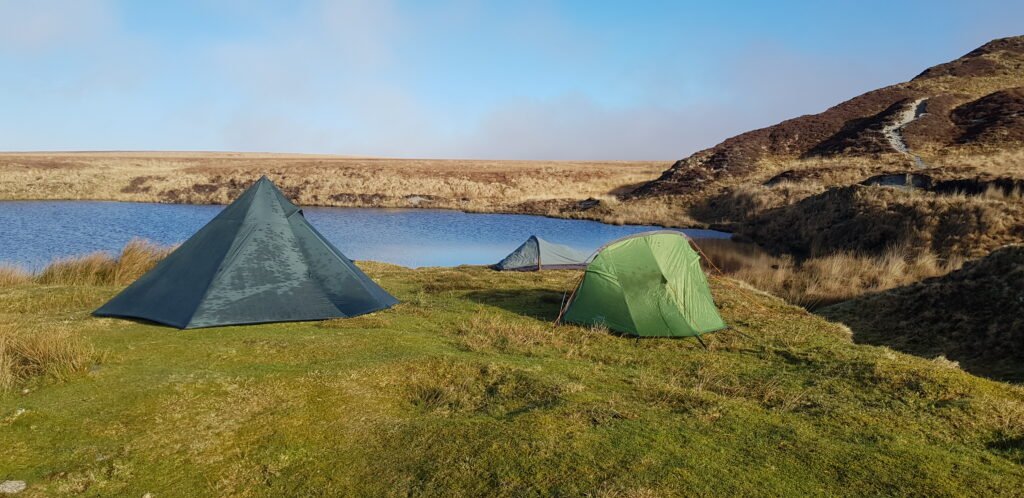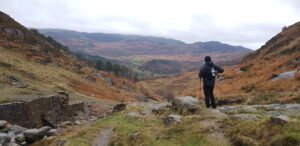
A Guide to Leaving No Trace When Wild Camping
Wild camping offers a serene escape into nature, but with great adventure comes great responsibility. Practising Leave No Trace principles ensures we preserve these wild spaces for future generations. Here’s a guide to leaving no trace during your wild camping trips.
1. Plan Ahead and Prepare
Preparation is crucial for leaving no trace. Research the regulations and conditions of your chosen wild camping location. Know the weather forecast, pack appropriate gear, and plan your meals to minimise waste. Being well-prepared reduces the likelihood of emergencies and ensures you can adhere to the principles effectively. Check local guidelines for campfires, wildlife considerations, and any restrictions to avoid surprises.
If you are planning on wild camping in Dartmoor, then you can check out Dartmoor National Park’s tips for wild camping which includes their rules and latest wildlife guidelines.
2. Travel and Camp on Durable Surfaces
Stick to established trails and campsites whenever possible to practice wild camping responsibly. Durable surfaces like rock, gravel, or dry grass are preferable for setting up camp. Avoid fragile environments such as wetlands and alpine areas, which can be easily damaged and take years to recover.
Camping in previously impacted sites minimises new disturbances. When venturing off the beaten path, spread out tents and cooking areas to prevent creating new trails or campfire spots. When I venture out on an overnight trip, I always search for either ground that looks camped on before, or open ground where I will cause minimal impact on the surrounding area.
3. Dispose of Waste Properly
“Pack it in, pack it out” is the golden rule for leaving no trace. Carry all trash, leftover food, and litter back out with you. Use biodegradable soap for washing and scatter strained dishwater 60m away from water sources. For human waste, dig a “cathole” at least 20cm deep and 60m away from water sources, and cover it after use.
Even small items like fruit peels or bits of food can harm the environment. Food scraps attract wildlife, altering their natural behaviours and diet. It’s vital to clean up thoroughly and avoid leaving any trace of food behind.
4. Leave What You Find
Preserve the natural and cultural integrity of outdoor spaces by leaving rocks, plants, and historical artifacts undisturbed. Avoid creating new fire rings, digging trenches, or building structures. Take only memories and leave only footprints.
Nature’s beauty is in its unspoiled state. By leaving what you find, you allow others to experience the same pristine environment. Resist the temptation to take souvenirs, no matter how small.
5. Minimise Campfire Impact
Use a camp stove for cooking instead of a campfire to reduce fire risk and environmental impact. If fires are allowed, use established fire rings, keep fires small, and ensure they are completely extinguished before leaving. Scatter cool ashes to disperse remnants.
In areas where fires are permitted, gather dead and downed wood no larger than your wrist. Avoid burning trash, as it releases harmful chemicals and leaves residue. Always follow local fire regulations and be mindful of wildfire risks.
6. Respect Wildlife
Observe wildlife from a distance and never feed animals, as this disrupts their natural behaviours and diets. Store food securely to prevent animals from accessing it. Keep pets under control to avoid disturbing wildlife and their habitats.
Remember, our presence in nature is temporary. Avoid making noise or sudden movements that can scare animals. Use binoculars or a camera with a zoom lens to observe animals without getting too close.
7. Be Considerate of Other Visitors
Respect other campers and hikers by keeping noise levels down and yielding the trail. Leave campsites as you found them, or better. Your considerate behaviour helps everyone enjoy the outdoors in harmony.
Everyone goes to nature for peace and solitude. By being considerate, we ensure that everyone can enjoy the same tranquil experience. Simple acts like keeping your voice low and giving way on trails can make a significant difference.
Tips from Wanderture
Most of these principles are common sense, but the main take away is to be respectful, to both the environment and other visitors.
- Plan your meals. Bring them in reusable containers that you can wash and take home with you.
- Use a portable stove such as a Trangia. This removes the need to cook over a fire where regulations restrict you.
- Camp solo, or in small groups. This way you will significantly minimise your impact on the trail and camping area, whilst minimising disturbances towards other visitors and animals.
- Always pack a bin bag. You can conveniently stash away any food waste in your bag without the risk of contaminating your gear.
- Store food in a dry bag. I use dry bags for both food and clothes, but for food it has the added benefit of keeping it secure from animals. If you are wild camping in the UK where there are no bears, you can close the dry bag and bring it inside the tent with you at night.
By following these seven Leave No Trace principles, you help protect the natural beauty and ecological health of wild places. Wild camping is a rejuvenating experience, and practicing these guidelines ensures it remains so for everyone who follows. If you have never been wild camping before and would like to know where to start, then check out our beginners guide to wild camping.
Happy camping!



